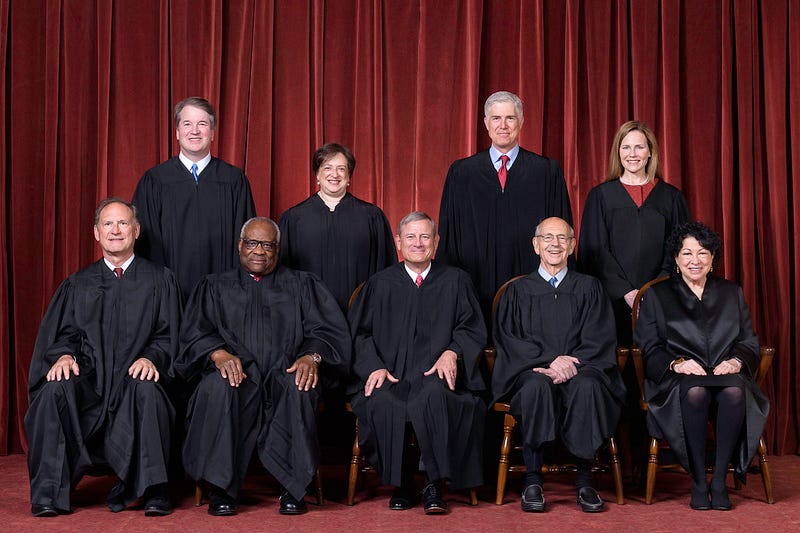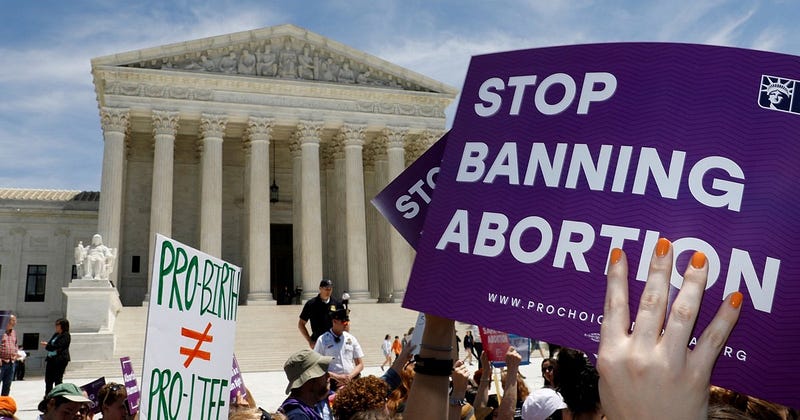
It is no secret that partisan divisions seem to be reaching a fever pitch in today’s politics. Constituents and politicians alike are leaning more radical, with cooperation across the aisle in both the House of Representatives and the Senate becoming scarce. However, the fear of partisan agendas obscuring progress has extended to the unelected authoritative body: the Supreme Court.
According to the Gallup Poll conducted Sept. 1–17, American approval ratings of the Supreme Court have dropped to an all time low of 40%. This is a record for the lowest rating ever recorded in this metric since Gallup began polling it in 2000. Some theorized that this distrust of the Court directly relates to suspicions that Justices support certain political agendas rather than having partisan-free judgements.
This poll coincides with the Court’s Sept.1 ruling on Senate Bill 8, commonly referred to as the Texas Heartbeat Act. This law gives all private citizens the right to sue any person who attempts to get an abortion past six weeks, as well as any person who aids them, including anyone from Uber drivers to health care professionals. Any private citizen who sues and is successful receives a $10,000 reward. In a 5–4 ruling, the Court allowed this law to pass, citing “complex and novel” procedural reasons for their decision. The Court’s logic is that most laws call upon law enforcement officials to enforce them, whereas this law calls upon private citizens to sue. This is uncharted territory, resulting in the passing of the law when many similar bills that differed only in enforcement were struck down.
Despite these technicalities, the truth remains that the few abortion clinics in Texas are adhering to this law out of fear of being sued. Many women do not know they are pregnant until after six weeks, which causes many to call this law essentially a ban of all abortions.
Abortion is a highly partisan and divisive issue, causing some to claim a lack of objectivity on the Court’s part. Many of the justices have been criticized as influencing their decisions with their religious and conservative personal beliefs.
Justice Amy Coney Barret, a known conservative Christian, gave a speech at University of Louisville’s McConnell Center on Sept. 13, just twelve days after the passing of the Texas Heartbeat Act. The general theme of Barrett’s speech was one of instilling trust in the courts. She said “my goal today is to convince you that this Court is not composed of a bunch of partisan hacks.” Many infer that Barrett’s speech is a direct response to the declining faith in the objectivity of the high court, especially following the Sept. 1 ruling.
This also relates to the issue commonly known as court-packing. Court-packing was discussed in depth during the presidential debates — for example, following Amy Coney Barett’s appointment, there is now a conservative majority in the Supreme Court — and refers to changing the number of Justices in the Court. In the modern context, many feared (and others hoped) that President Biden would propose adding another Justice in order to make a liberal-conservative split instead of a conservative majority. This debate, although widely contested, has seen no action as of yet.
The question arises: why does the Court care about public approval? They do not need to run for reelection and are guaranteed their position for life. However, despite their seemingly untouchable position, they lack one important thing: the authority to enforce laws.
As seen in the case of the Indian Removal Act of 1830, the Supreme Court needs support from the other branches of elected government to obtain its power. In the 1830 case of Worcester v. Georgia, the Court ruled that the Indian Removal Act was unconstitutional. However, Native American removals continued, thus ignoring the Court. The checks and balances of government failed in this case, as the Supreme Court alone cannot uphold its rulings: it needs the support of the elected officials.
I do not think that we are at the point where the American government or people would blatantly ignore the ruling of the Court as they did in 1830. But I do think there is a certain necessity of trust between the courts and the public for stability. Is it justified to distrust the Court? Will a perhaps healthy skepticism devolve into anarchy? Or is it more dangerous to put absolute faith in unelected officials?

















